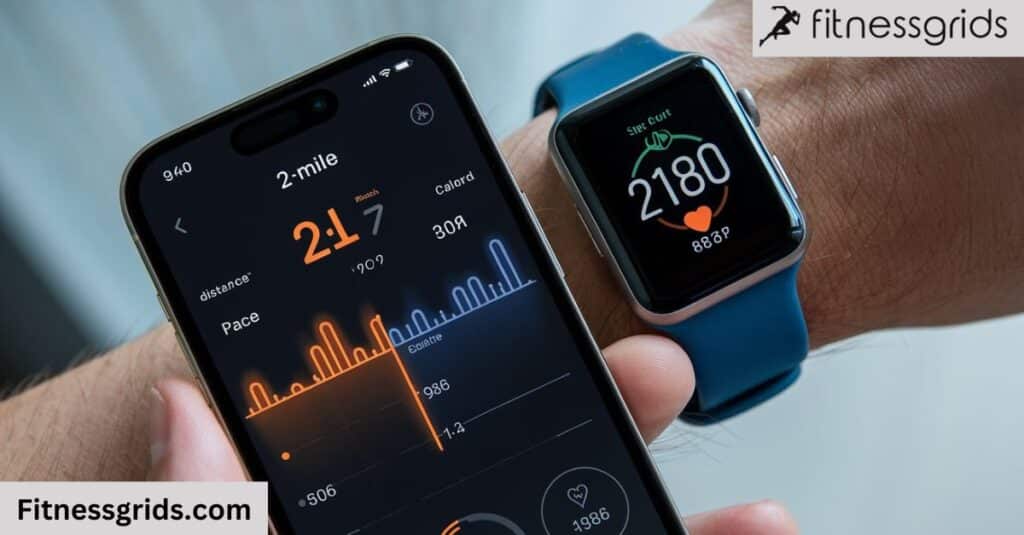Walking is a simple, yet powerful way to maintain your health and stay active. Whether you’re walking for fitness, weight loss, or just to enjoy the outdoors, you might wonder: How long does it take to walk 2 miles? This guide will break down the average times, factors that affect your pace, health benefits of walking 2 miles daily, and tips to help you improve your time.
Let’s dive into all the practical details to help you get the most out of your walking routine!
How Long Does It Take to Walk 2 Miles?
The answer to how long does it take to walk 2 miles largely depends on a variety of factors, including your walking speed, age, fitness level, and terrain. On average, it takes most people between 30 to 40 minutes to walk 2 miles at a moderate pace.
| Pace | Miles Per Hour | Time to Walk 2 Miles |
|---|---|---|
| Leisurely | 2.0 – 2.5 mph | 40 – 50 minutes |
| Moderate | 3.0 – 3.5 mph | 30 – 35 minutes |
| Brisk/fast | 4.0 mph | 28 – 30 minutes |
Your walking speed for 2 miles can vary depending on a number of factors. Let’s explore some of the key variables that influence your walking time.
CLICK HERE .if you need more informative thingsFactors That Affect Your 2-Mile Walking Pace
Several factors can impact how fast you walk:
- Age: Younger individuals tend to walk faster than older adults.
- Fitness Level: A regular walker will naturally walk faster than someone who’s just starting out.
- Terrain: Walking on flat ground is easier and faster than walking uphill or on uneven surfaces.
- Weather: Wind, rain, and extreme temperatures can slow your pace.
- Walking Speed: Your pace determines your total time. A brisk walking speed will cover 2 miles much faster than a leisurely stroll.
Understanding these factors will help you estimate how long it takes to walk 2 miles in different conditions.
How Far Is 2 Miles?
When it comes to walking, knowing how far 2 miles actually is can give you a better sense of achievement. In terms of distance:
- 2 miles equals 3.2 kilometers or 10,560 feet.
- In steps, how many steps in 2 miles? On average, people take between 4,000 and 5,000 steps to walk 2 miles, depending on their stride length.
Converting 2 Miles to Common Units
Here’s a breakdown for better context:
| Unit | Equivalent |
|---|---|
| Kilometers | 3.2 km |
| Meters | 3,200 meters |
| Steps | 4,000 – 5,000 steps |
| Yards | 3,520 yards |
These comparisons can help you visualize what walking 2 miles looks like and help you set achievable fitness goals.
Time for a 2-Mile Walk by Age and Gender

Your age and gender can also influence your 2-mile walking pace. Here’s a look at average walking times for men and women by age:
| Age Group | Women (minutes) | Men (minutes) |
|---|---|---|
| 20s | 28-32 | 25-30 |
| 30s | 30-34 | 28-32 |
| 40s | 32-36 | 30-34 |
| 50s | 35-38 | 32-36 |
| 60+ | 38-42 | 34-40 |
As you can see, walking speeds tend to decrease with age, but that doesn’t mean older adults can’t maintain a healthy pace with regular practice.
Walking 2 Miles vs. Running 2 Miles: What’s the Difference?
You may be wondering about the time difference between walking 2 miles vs. running. On average, running 2 miles will be significantly faster than walking, taking about 15 to 20 minutes depending on your running pace.
However, walking has its own unique benefits. It’s easier on your joints and can still burn a significant number of calories. If you’re just starting out or prefer a low-impact activity, walking 2 miles might be the better choice for you.
| Activity | Time to Complete 2 Miles |
|---|---|
| Walking | 30-40 minutes |
| Running | 15-20 minutes |
Health Benefits of Walking 2 Miles
Walking offers a wide range of health benefits, especially if you make it a daily habit. Let’s take a closer look at how walking 2 miles daily can improve your physical and mental health.

Improves Heart Health
Walking 2 miles daily can significantly improve your heart health. According to the American Heart Association, regular walking can help lower blood pressure, reduce cholesterol, and decrease the risk of heart disease.
Weight Loss and Calories Burned
When it comes to calories burned walking 2 miles, several factors come into play, such as your weight, walking speed, and terrain. On average, a person weighing 150 lbs can burn about 180 calories during a 2-mile walk at a moderate pace.
Here’s a quick look at calorie estimates for different weights:
| Weight (lbs) | Calories Burned (2 miles) |
|---|---|
| 125 | 140 |
| 150 | 180 |
| 175 | 210 |
| 200 | 240 |
Walking is a great way to maintain a healthy weight or even lose weight if paired with a proper diet.
Reduces Risk of Chronic Diseases
Walking regularly helps lower the risk of developing chronic diseases like type 2 diabetes, high blood pressure, and certain types of cancer. The health benefits of walking extend far beyond just physical fitness.
Boosts Mood and Reduces Stress
Did you know that walking can also improve your mental health? Walking releases endorphins, which are the body’s natural mood enhancers. A daily 2-mile walk can reduce symptoms of anxiety, depression, and overall stress levels.
Strengthens Muscles and Bones
Walking 2 miles at a brisk pace can also help strengthen your muscles, bones, and joints. It’s particularly beneficial for older adults, helping to reduce the risk of osteoporosis and arthritis.
Enhances Creative Thinking
Studies have shown that walking can improve creative thinking and problem-solving. So, if you’re feeling stuck, take a break and go for a walk!
How to Make a 2-Mile Walk More Enjoyable
Bored with the same routine? Spice things up with these 2-mile walking tips to keep your walks fun and interesting:
- Change Your Route: Explore new walking paths, parks, or neighborhoods to keep things exciting.
- Walk with a Friend: Walking with a partner can make the time pass faster and create a social bonding experience.
- Listen to Music or Podcasts: Distract yourself with your favorite tunes or an engaging podcast.
- Set Personal Goals: Use a 2-mile walk time calculator to track your speed and try to improve your time each week.
- Incorporate Strength Exercises: Add lunges, squats, or push-ups along your route to give yourself a full-body workout.
Calories Burned Walking 2 Miles
One of the most common questions people ask is how many calories you burn walking 2 miles. As mentioned earlier, the calories burned depend on several factors, including your weight and walking speed.
For a rough estimate, you can use the following formula:
Calories Burned = (Weight in lbs) x 0.53 (for moderate pace) x distance in miles
So, for someone weighing 150 pounds:
Calories Burned = 150 x 0.53 x 2 = 159 calories
Of course, walking uphill or at a faster pace will burn even more calories!
How Many Steps in 2 Miles?
If you’re tracking steps, you might wonder how many steps in 2 miles. On average, it takes about 4,000 to 5,000 steps to cover 2 miles. The number of steps will vary depending on your stride length.
| Stride Length (feet) | Steps in 2 Miles |
|---|---|
| 2.0 | 5,280 |
| 2.5 | 4,224 |
| 3.0 | 3,520 |
This is a great way to monitor your daily step count and ensure you’re meeting your fitness goals.
How to Track Your 2-Mile Walk

Tracking your 2-mile walking pace and progress can help keep you motivated. There are several ways to do this:
- Fitness Apps: Use apps like Strava, MapMyWalk, or Fitbit to log your distance, pace, and calories burned.
- Wearable Trackers: Devices like Apple Watch or Fitbit make it easy to monitor your steps and heart rate.
- Manual Tracking: If you prefer not to use technology, simply time yourself using a stopwatch or smartphone timer.
Walking Tips for Beginners
If you’re just starting out, here are some important walking tips for beginners to help you stay on track:

- Start Slowly: Don’t push yourself too hard in the beginning. Gradually increase your speed and distance as your endurance improves.
- Wear Comfortable Shoes: Investing in a good pair of walking shoes is key to preventing blisters and foot pain.
- Keep Hydrated: Make sure to drink water before and after your walk, especially if you’re walking in hot weather.
- Focus on Posture: Keep your shoulders back, head up, and arms swinging naturally to maintain good walking form.
Is Walking 2 Miles Daily Enough for Weight Loss?
Many people wonder if walking 2 miles daily is enough for weight loss. The answer depends on several factors, including your diet and overall activity level. Walking 2 miles can certainly contribute to weight loss, especially when combined with a balanced diet and other forms of exercise.
To create a calorie deficit (which is essential for weight loss), you may need to combine walking with more vigorous activities like running or strength training.
Walking Safety Tips
Although walking is generally a safe activity, it’s important to take a few precautions:
- Stay Visible: If you’re walking at night or early morning, wear reflective clothing or a safety vest.
- Stick to Well-Lit Areas: Avoid poorly lit or unfamiliar areas, especially if you’re walking alone.
- Be Aware of Traffic: Pay attention to cars, bikes, and other pedestrians, especially when crossing roads.
- Walk with a Partner: Walking with a friend or group can increase safety and add a social element to your walks.
Frequently Asked Questions
How long does it take to walk 2 miles?
On average, it takes 30 to 40 minutes to walk 2 miles, depending on your pace.
Can I run instead of walking?
Yes, running will significantly decrease your time, taking about 15 to 20 minutes to cover 2 miles.
Is walking 2 miles daily enough for fitness?
Yes, walking 2 miles daily can improve your overall health and help maintain weight. However, combining it with other exercises will yield better results.
Walking 2 miles is a fantastic way to stay active and improve your overall health. Whether you’re walking to lose weight, boost your mood, or enhance your cardiovascular fitness, the benefits of regular walking are undeniable. So, grab your walking shoes, set a goal, and enjoy the journey toward better health!

I’m Flix Hart, the creator of Fitness Grids, where I share valuable insights and content related to health, fitness, and overall well-being. My goal is to inspire and guide readers towards a healthier, more active lifestyle






